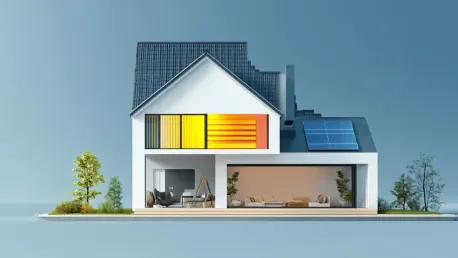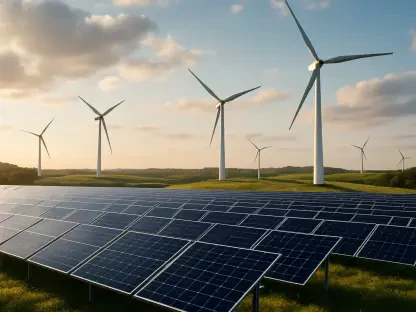Energy-saving upgrades have become a pivotal consideration for homeowners and prospective buyers alike. As awareness of environmental issues grows and energy costs rise, these enhancements not only reduce utility expenses but also significantly boost a property’s market value. Modern real estate trends show a clear preference for homes that incorporate sustainable and efficient energy solutions. By investing in these upgrades, homeowners can transform their properties into valuable assets that appeal to a broad range of buyers.
The Influence of Energy Efficiency on Property Value
In today’s real estate market, energy efficiency plays a crucial role in determining property value. Homes equipped with energy-saving features are often valued higher and attract more potential buyers. This is mainly due to the long-term financial benefits and the growing trend towards environmentally responsible living. Energy-efficient homes offer reduced utility bills and higher comfort levels, making them a more attractive investment for buyers who are conscious about both their finances and their environmental impact.
Furthermore, energy efficiency directly impacts a property’s Energy Performance Certificate (EPC) rating, which is a significant factor in property valuation. A higher EPC rating indicates a home’s superior energy efficiency, leading to higher appraisal values and stronger market interest. Efficient homes also tend to sell faster compared to their less efficient counterparts, as buyers increasingly prioritize sustainability and lower running costs. Therefore, comprehensive energy-saving improvements can provide substantial returns on investment by enhancing a property’s overall market appeal.
Modern Insulation: A Fundamental Step
Effective insulation is essential in the quest to reduce heat loss and energy consumption. Modern insulation solutions, such as advanced cavity wall insulation and loft insulation, have proven highly effective in maintaining a home’s thermal comfort while keeping energy costs down. By preventing cold air infiltration and reducing the need for excessive heating, these upgrades can lead to significant savings on energy bills, enhancing the property’s overall value.
Investing in high-quality insulation materials not only improves a home’s energy efficiency but also contributes to its structural integrity. Proper insulation helps in regulating indoor temperatures, thereby reducing the wear and tear on HVAC systems and prolonging their lifespan. As a result, homes with modern insulation are more attractive to savvy buyers who recognize the long-term benefits. These upgrades can also increase a home’s appeal by ensuring year-round comfort and reducing maintenance costs, making them a worthy investment for any homeowner.
Windows and Glazing: Enhancing Thermal Efficiency
Upgrading to high-performance windows is another significant step in improving a home’s energy efficiency. Double or triple glazing with low-emissivity glass dramatically reduces heat transfer, minimizes energy loss, and enhances overall thermal efficiency. These advanced windows also offer improved noise insulation and increased security, adding to the property’s appeal. Homes equipped with modern glazing solutions are often viewed as more valuable, leading to quicker sales and higher market prices.
Moreover, contemporary window technologies include features like inert gas fills between panes, which further enhance their insulating properties. These advancements contribute to maintaining a stable indoor climate, thereby lessening the reliance on heating and cooling systems. This translates into lower utility bills and increased comfort for occupants. Buyers are increasingly looking for homes that incorporate such energy-efficient solutions, understanding the savings and environmental benefits they offer. Hence, investing in high-performance windows can significantly boost a home’s desirability and market value.
Smart Heating Controls: The Future of Home Management
Smart heating controls represent a cutting-edge advancement in home energy management. Devices such as programmable thermostats and app-controlled heating systems allow homeowners to manage and schedule temperatures with precision. By optimizing energy usage based on occupancy patterns and preferences, these smart systems provide considerable cost savings while enhancing convenience. Tech-savvy buyers are especially drawn to these innovations, seeing them as an integral part of modern, efficient living.
The appeal of smart heating systems extends beyond mere cost savings. They offer enhanced comfort by ensuring that homes are heated precisely when needed, avoiding wastage of energy. The ability to control heating remotely through smartphone applications adds a layer of convenience that resonates with contemporary lifestyles. Additionally, the integration of these systems with other smart home technologies creates a cohesive and streamlined living experience, making properties more appealing. Overall, homes equipped with smart heating controls are highly attractive in the modern real estate market due to the advantages they offer in terms of efficiency, savings, and comfort.
Solar Panels: Harnessing Renewable Energy
The installation of solar panels is a clear indicator of a homeowner’s commitment to sustainability and energy independence. Modern solar panels are more efficient and aesthetically pleasing than ever before, allowing homeowners to generate their own electricity and reduce reliance on the grid. This renewable energy solution not only cuts down on utility bills but also enhances a property’s market appeal, particularly among eco-conscious buyers.
Solar panels offer the dual benefit of reducing energy costs and providing income through the sale of surplus electricity back to the grid. This makes them a financially sound investment, with the potential for significant returns over time. Additionally, homes with solar panels often receive higher valuations due to their reduced carbon footprint and sustainable energy practices. As environmental awareness continues to rise, the demand for properties with renewable energy solutions will likely grow, making solar panel installations a smart choice for boosting home value.
High-Efficiency Heating and Lighting
Upgrading to energy-efficient boilers and LED lighting systems can lead to immediate reductions in energy costs and contribute to a home’s overall energy efficiency. New condensing boilers are designed to extract more heat from the same amount of fuel compared to older models, resulting in lower energy consumption and running costs. Similarly, smart LED lighting systems not only consume less power but also offer longer lifespans and enhanced functionality, further reducing maintenance and utility expenses.
These upgrades improve a home’s environmental footprint by significantly lowering emissions and energy use. They also enhance the property’s marketability, as energy-efficient heating and lighting solutions are highly sought after by buyers seeking long-term savings. The combination of reduced energy costs and increased sustainability makes homes with these features more appealing, often justifying higher property prices. Investing in high-efficiency heating and lighting is not only beneficial for immediate financial gains but also enhances the property’s overall value and desirability.
Additional Energy-Saving Measures
Incorporating a range of additional energy-saving measures can further boost a home’s value and market appeal. Features such as draught-proofing, mechanical ventilation with heat recovery (MVHR), and energy-efficient appliances play crucial roles in enhancing a home’s overall efficiency. Draught-proofing ensures that warm air stays inside during winter and cool air during summer, thereby reducing the need for excessive heating or cooling. Meanwhile, MVHR systems provide fresh air while retaining heat, balancing comfort and efficiency.
Energy-efficient appliances, particularly those with high-efficiency ratings, contribute significantly to reducing a home’s overall energy consumption. Built-in appliances in kitchens and utility areas are especially valuable, as they are integral to daily living. Appliances that integrate smart features for remote operation and energy monitoring are increasingly popular among tech-oriented buyers, adding to the property’s appeal. Collectively, these measures improve indoor air quality, enhance comfort, and ensure efficient energy use, presenting a compelling case for a higher property valuation.
Enhancing Property Value Through Sustainability
Energy-saving upgrades have become increasingly important for homeowners and those looking to buy. With growing awareness of environmental issues and rising energy costs, these enhancements not only lower utility expenses but also significantly raise a property’s market value. Current real estate trends clearly favor homes that incorporate sustainable and energy-efficient solutions. This preference is driven by both economic and environmental concerns, as buyers are more aware of the long-term savings and reduced carbon footprint associated with such upgrades.
Investing in energy-efficient features like solar panels, insulation, and energy-saving appliances allows homeowners to create properties that attract a broad range of buyers. Not only can these homes command higher prices, but they often sell faster due to their appeal to environmentally conscious consumers. Additionally, government incentives and rebates for energy-saving improvements make such investments even more attractive. In sum, homeowners transforming their properties with these upgrades can turn them into highly desirable assets in the real estate market.









